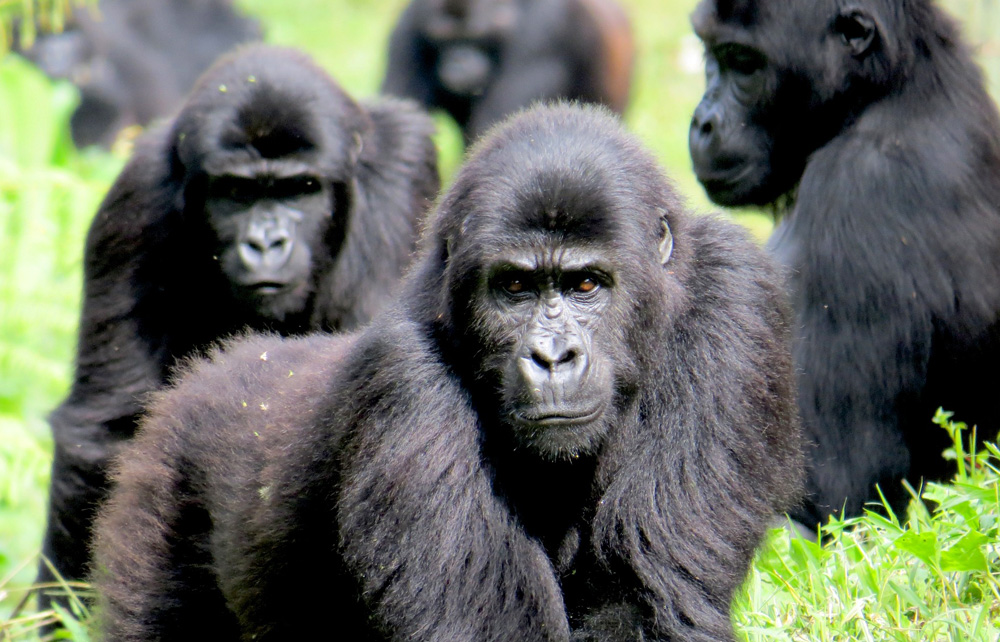-
Sharon Guynup, Mongabay
Axing “Conflict Minerals” Rule Also Threatens DRC’s Endangered Grauer Gorillas
March 2, 2017 By Wilson Center StaffFor weeks, the primatologists had followed a group of Grauer’s gorillas over rugged terrain – hacking through dense rainforest; following knife-edged ravines; and crossing a nearly impenetrable mountainous landscape in the eastern part of the Democratic Republic of the Congo (DRC).
Stuart Nixon, Chryso Kaghoma, and their Congolese field team tracked Gorilla beringei graueri using GPS. They collected data on where the animals nested each night, what they ate, and other habits. But the researchers kept their distance, trailing a day behind the primate family, so as not to influence the group’s behavior or normalize them to people.
Or so the scientists thought. One day, while sitting quietly in the forest, Nixon heard the bushes move some 10 feet away. He looked up and into the blue-black face of a big silverback male. They made eye contact for a few very long seconds before the gorilla turned and ran off with the rest of his family back into the dense undergrowth.
It was a rare sighting of a great ape that was once dubbed “the forgotten gorilla” because it was so little studied and was absent from most of the world’s zoos.
In two decades – just one generation – numbers of Grauer’s gorillas have plummeted by 77 percent. Only about 3,800 remain in the wild, according to a major study published in 2016.
The reasons: civil war and mining for “conflict minerals,” including tin ore and coltan, both used in cell phones, laptops, and other consumer electronics. The gorillas are heavily poached by armed militias, miners, and to a lesser degree, refugees, and they are being eaten to near-extinction.
Sharon Guynup is a public policy fellow at the Wilson Center, where she is working on a book about environmental crime. She writes for National Geographic, The New York Times, and other publications.
Sources: International Union for Conservation of Nature, Mongabay, Wildlife Conservation Society.
Photo Credit: A Grauer’s gorilla, used with permission courtesy of Sharon Guynup/the Gorilla Rehabilitation and Conservation Education Center.
 A Publication of the Stimson Center.
A Publication of the Stimson Center.




